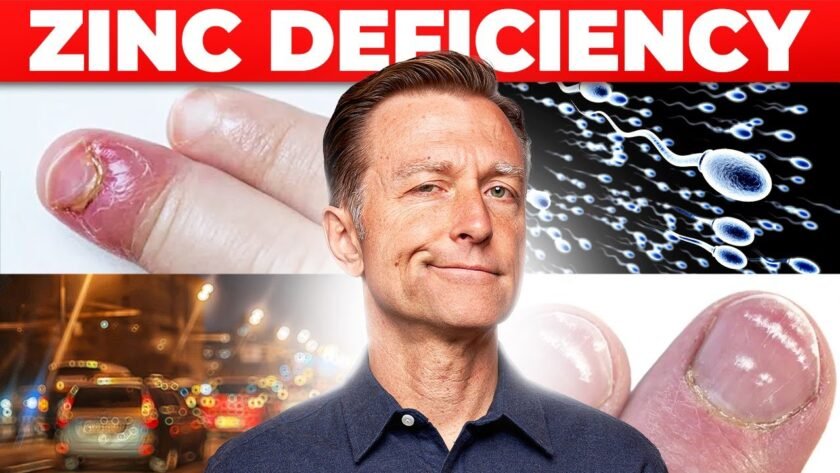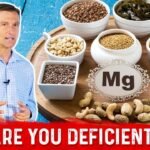Are you experiencing unusual symptoms but can’t pinpoint the cause? Could Zinc Deficiency be the missing piece of the puzzle? This article delves into the surprising and often overlooked symptoms of zinc deficiency, from loss of taste to impaired memory. Learn how to recognize the subtle signs your body might be sending and discover if zinc deficiency is impacting your health.
Brief The Article:
What is Zinc and Why is it Important?
- Zinc is a vital trace mineral that plays a crucial role in numerous bodily functions, including immune health, cell growth, and wound healing.
What are the Symptoms of Zinc Deficiency?
Zinc deficiency can manifest in various ways, including:
- Well-known symptoms:
- Loss of smell
- Stunted growth in children
- Weakened immune system
- Impaired thyroid function
- Hair loss or thinning
- Diarrhea
- Dermatitis (skin inflammation)
- Mental agitation, irritability, or fatigue
- Lesser-known symptoms:
- Loss of taste (food tastes bland, bitter, or metallic)
- Inability to perceive different flavors
- Hypogonadism (shrunken testicles, decreased testosterone, lower sperm count)
- Memory problems
- Learning difficulties
- Problems with spatial location
- Infections around the nail bed
- White dots or streaks on nails
- Slow wound healing
- Night blindness
What Causes Zinc Deficiency?
- Dietary factors:
- High consumption of refined carbohydrates (sugar, pasta, cereal, bread)
- Phytic acid in whole grains (inhibits zinc absorption)
- Physiological factors:
- Low stomach acid (hinders zinc absorption)
- Lifestyle factors:
- Stress (depletes zinc reserves)
Who is at Risk of Zinc Deficiency?
- People with diets high in refined carbohydrates and low in zinc-rich foods
- People with digestive issues like low stomach acid
- People under high stress
- People in developing countries with limited access to nutrient-rich foods
How Can You Test for Zinc Deficiency?
- Zinc taste test: A simple test involving a zinc solution can help determine if you have a deficiency.
How Can You Address Zinc Deficiency?
- Eat a balanced diet rich in zinc-rich foods like oysters, red meat, and poultry.
- Consider zinc supplementation, but be mindful of dosage and potential interactions with other minerals like copper.
- Address underlying health conditions that may contribute to poor zinc absorption, such as low stomach acid.
So let’s dive into the details…
Symptoms of a Zinc Deficiency: Not-So-Obvious Signs You Might Be Missing

I’d like to talk about some not commonly known symptoms of a zinc deficiency. And because zinc is so important in your body, it’s a trace mineral, you don’t need a lot of it but if you’re missing it, it can create a lot of problems. I think this topic is valuable to identify all these kind of abstract symptoms that you may not connect with a zinc deficiency.
- Zinc is a trace mineral essential for various bodily functions.
- Zinc deficiency can lead to a wide range of symptoms, some of which are not commonly known.
Well-Known Symptoms of a Zinc Deficiency
Now typically people might know usually that a zinc deficiency can produce a loss of smell because of the concentration of zinc in the sinuses and also in the brain right behind it, which is called the olfactory bulb.
And also, if a child is deficient in zinc early on, they’re not going to be as tall, okay? So they can have a lack of development.
And of course, most people know that zinc is so important for the immune system. So if you’re deficient, you’re going to be more susceptible to having infections, especially respiratory infections and especially viruses.
- Common symptoms of zinc deficiency include:
- Loss of smell
- Stunted growth in children
- Weakened immune system (increased susceptibility to infections, particularly respiratory infections and viruses)
Lesser-Known Symptoms of a Zinc Deficiency: Thyroid, Hair, and Skin

You may also know that if zinc is deficient the thyroid might not be able to convert T4 to T3, the active version of the thyroid hormone.
And they may also know that it’s related to hair loss or thinning of the hair and diarrhea, as well as dermatitis because of the concentration in your skin.
And they may also know that it can create some mental agitation or irritation or even fatigue.
- Other known symptoms of zinc deficiency include:
- Impaired thyroid function (difficulty converting T4 to T3)
- Hair loss or thinning
- Diarrhea
- Dermatitis (skin inflammation)
- Mental agitation, irritability, or fatigue
Symptoms of a Zinc Deficiency: Seven Surprising Signs
But I want to explain seven symptoms that not many people know about. So let’s talk about number one.
1. Loss of Taste: A Subtle Sign of Zinc Deficiency

Okay, we talked about a lack of smell, but let’s talk about a lack of taste. And I’m talking about when you eat food you may find your food is just bland. It might taste more bitter. It might be more metallic.
- Zinc deficiency can lead to a loss of taste, making food seem bland, bitter, or metallic.
2. Inability to Perceive Flavors: A Deeper Dive into Zinc Deficiency’s Impact on Taste

Number two is a lack of flavor, okay, which relates to the uh something being bland but with a zinc deficiency, you won’t be able to perceive different flavors,
which would really suck if you’re trying to enjoy your food and everything is just like the same flavor. That would be devastating.
So having enough zinc can help you perceive through your taste buds different flavors which is very very important in that perception that normally we’re supposed to have.
- Zinc deficiency can impair the ability to distinguish different flavors.
3. Hypogonadism: The Link Between Zinc Deficiency and Male Reproductive Health
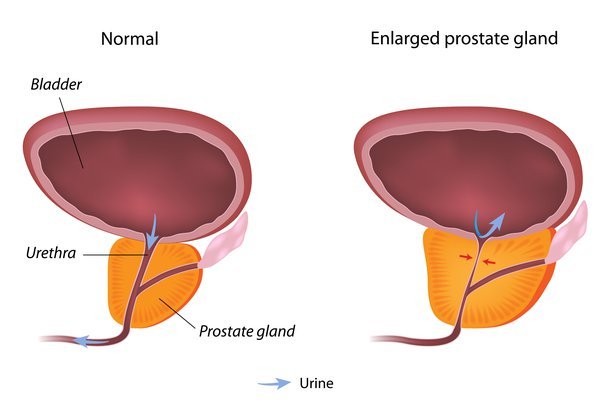
Number three, hypogonadism. Okay so in other words, the testicle actually shrinks, it gets smaller, which is going to relate to a decreased testosterone.
Okay, it’s also going to relate to lower amounts of sperm because out of all the fluids in the body, a lot of the concentration of zinc is in the sperm for a survival mechanism and also to increase the quality of sperm.
And so this could relate to infertility and low testosterone is a big deal with men and so and having enough zinc is a real nice way to make sure that your testosterone is at the right level.
- Zinc deficiency can contribute to hypogonadism, leading to:
- Shrunken testicles
- Decreased testosterone
- Lower sperm count
- Potential infertility issues
4. Hippocampus and Memory: How Zinc Deficiency Affects Brain Function

Number four, we take the brain and we look at the areas of the brain that has the most concentrated zinc, the hippocampus comes up as number one.
There’s other parts of the brain. The hippocampus normally should have a lot of zinc. So if you’re deficient in zinc, what can happen?
What kind of symptoms could happen if the hippocampus can’t work well? Let me remember… what was that? Uh… memory problems, an inability to learn, okay, a problem with spatial location.
- Zinc is highly concentrated in the hippocampus, a brain region crucial for memory and learning.
- Zinc deficiency can impair hippocampus function, potentially leading to:
- Memory problems
- Learning difficulties
- Issues with spatial awareness
5. Nail Bed Infections and White Marks: More Clues to Zinc Deficiency
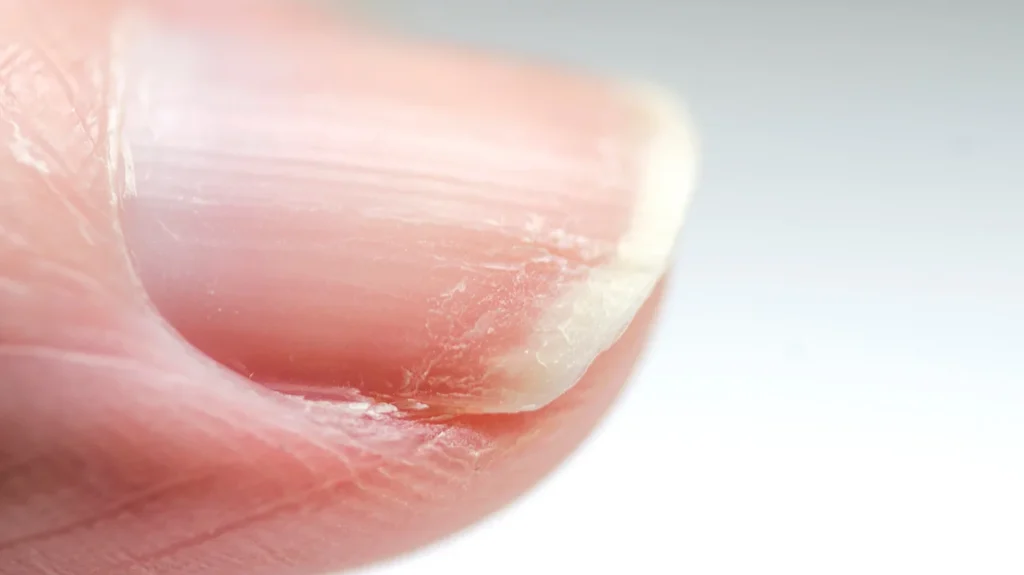
All right, number five, a higher susceptibility with an infection around your nail bed. So if you’ve ever had like this red swollen puffy tissue around your nails, that is a zinc deficiency.
Since we’re on the topic of nails, there are some other things too like you may have these little white dots, you may also have white lines that go horizontal and they can actually have different shapes too but if you see these little horizontal white streaks, that is a zinc deficiency.
- Zinc deficiency can increase the risk of infections around the nail bed.
- White dots or horizontal white streaks on nails can also be indicative of zinc deficiency.
6. Slow Wound Healing: The Role of Zinc in Tissue Repair
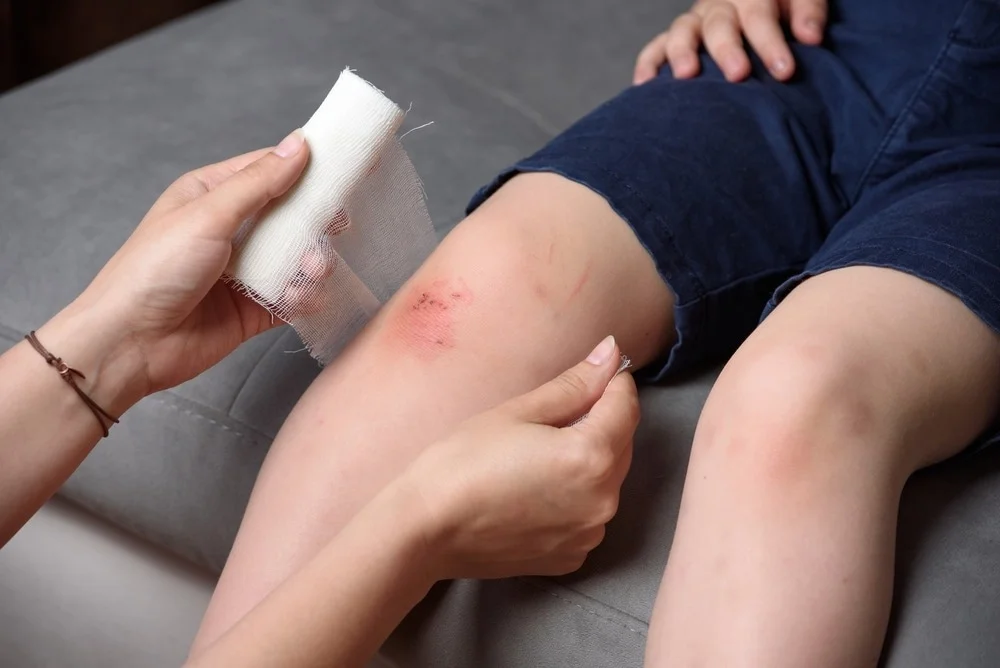
All right, number six, a lack of repair. It takes forever for your body to repair after exercise, after an injury, any trauma. So zinc speeds up your body’s ability to repair.
- Zinc deficiency can slow down the body’s ability to heal and repair tissues.
7. Night Blindness: Another Unexpected Symptom of Zinc Deficiency

And number seven, night blindness. Now typically night blindness is associated with a vitamin A deficiency but also zinc.
Now I mentioned the hypothalamus being concentrated with zinc but the retina is also part of the brain and it too has a very concentrated amount of zinc.
And so when you run out of that zinc, it can affect the retina which is basically brain tissue that’s extending out of your skull in your eyeball that allows you to see and especially at night.
- Zinc deficiency can contribute to night blindness, as the retina (part of the brain) requires zinc for proper function.
What Causes Zinc Deficiency? The Role of Diet and Lifestyle

Okay, so anyway I wanted to cover these very important points. And I also want to mention why people are typically deficient in zinc.
Usually, it’s because they’re consuming too many refined carbohydrates in the form of sugar or pasta or cereal, especially or bread.
- High consumption of refined carbohydrates (sugar, pasta, cereal, bread) is a common contributor to zinc deficiency.
The Double Whammy of Refined Grains: Sugar and Phytic Acid Depleting Zinc
Because not only does this concentrated carb deplete zinc, the phytic acid in the so-called healthy whole grains also blocks your ability to absorb zinc.
So when you see things on bread that says whole grain bread or whole grain cereal, whatever that bran is where the phytic acid is and that can block zinc.
So you might say well okay well I won’t do the whole grain I’ll do the refined grain well then I’ll let sugar can also deplete zinc in another way.
- Phytic acid found in whole grains can further inhibit zinc absorption.
- Sugar can also deplete zinc levels.
Zinc Deficiency Test: A Simple Way to Check Your Levels
There’s a really simple way to find out if you’re zinc deficient. You can buy a zinc test, which basically is a little bottle with a dropper full and it has some zinc in it and you put about two teaspoons, I think it’s 10 milliliters, okay, in your mouth and you hold it for 10 seconds.
Now if you are deficient in zinc, you won’t taste anything. It must be bland, there’ll be no taste. But if you have sufficient zinc, you’ll start to notice it’s going to taste metallic. There’s a bitter taste to it.
- A simple zinc taste test can help determine if you have a zinc deficiency.
- No taste indicates zinc deficiency, while a metallic or bitter taste suggests sufficient levels.
Summary
Zinc is an important trace mineral. You don’t need a lot of zinc, but if you’re missing it, you could experience a lot of health concerns.
Commonly known symptoms of zinc deficiency:
• Loss of smell
• Dwarfism
• Susceptibility to infection
• Hair loss or thinning hair
• Diarrhea
• Dermatitis
• Mental irritability or fatigue
Lesser-known symptoms of zinc deficiency:
- Lack of taste (bland, metallic, or bitter-tasting food)
- Inability to detect flavors
- Hypogonadism
- Impaired hippocampus (memory problems, inability to learn, and problems with spatial location)
- Infected nail beds, weak nails, white spots or white lines on the nails
- Delayed healing
- Night blindness
The top cause of zinc deficiency is a diet high in refined carbohydrates. Learn more about the benefits of a low-carb diet in my other articles.
Download My FREE guide: First Signs of a Nutrient Deficiency
FAQ
What are the symptoms of zinc deficiency Enteropathica?
Acrodermatitis enteropathica is a rare genetic disorder characterized by zinc deficiency. Symptoms include:
- Severe skin rashes, particularly around body openings and extremities
- Diarrhea
- Alopecia (hair loss)
- Growth retardation
- Recurrent infections due to immune system dysfunction
- Neuropsychiatric symptoms such as irritability and emotional instability
This condition typically manifests in early infancy and requires lifelong zinc supplementation for management.
What are the major problems of zinc deficiency?
Zinc deficiency can lead to numerous health issues, including:
- Impaired immune function, increasing susceptibility to infections
- Delayed wound healing
- Growth retardation in children
- Cognitive impairment and reduced learning capacity
- Hormonal imbalances, affecting reproductive health
- Skin problems, including dermatitis and acne
- Loss of appetite and altered taste perception
- Hair loss
- Night blindness and other vision problems
These issues can significantly impact overall health and quality of life if left untreated.
Why is a zinc deficiency often difficult to diagnose?
Zinc deficiency can be challenging to diagnose for several reasons:
- Symptoms are often non-specific and can mimic other conditions
- No single, reliable biomarker for zinc status exists
- Plasma zinc levels, the most common test, may not accurately reflect total body zinc stores
- Zinc levels can fluctuate due to factors like stress, infection, or recent meals
- Mild to moderate deficiencies may not present clear clinical signs
- Many healthcare providers may not routinely consider zinc status in their assessments
These factors often lead to underdiagnosis or misdiagnosis of zinc deficiency, emphasizing the importance of comprehensive clinical evaluation and awareness of risk factors.
What are the behaviors of zinc deficiency?
Zinc deficiency can manifest in various behavioral changes, including:
- Irritability and mood swings
- Lethargy and fatigue
- Decreased attention span and concentration difficulties
- Impaired memory and learning abilities
- Reduced appetite and food aversion
- Altered taste perception, leading to pica (craving non-food items)
- Depression and anxiety in severe cases
- Sleep disturbances
These behavioral changes can significantly impact daily functioning and quality of life, highlighting the importance of maintaining adequate zinc levels.
Signs of zinc deficiency in females
While many zinc deficiency symptoms are common to both sexes, females may experience some specific signs:
- Irregular menstrual cycles or amenorrhea
- Fertility issues and complications during pregnancy
- Increased risk of postpartum depression
- Hormonal imbalances affecting mood and skin health
- Thinning hair or hair loss
- Weakened immune system, leading to frequent infections
- Slow wound healing, particularly important during childbirth recovery
- Altered taste perception, potentially affecting nutrition during pregnancy
Women, especially during pregnancy and lactation, have increased zinc requirements and should be particularly vigilant about their zinc status.
Zinc deficiency symptoms
General symptoms of zinc deficiency include:
- Loss of appetite
- Impaired immune function
- Slow wound healing
- Skin problems (rashes, acne, dry skin)
- Hair loss
- Diarrhea
- Eye and vision problems
- Unexplained weight loss
- Taste abnormalities
- Cognitive impairment
- Growth retardation in children
These symptoms can vary in severity and may develop gradually, making early recognition crucial for timely intervention.
Zinc deficiency neurological symptoms
Zinc plays a crucial role in neurological function. Deficiency can lead to various neurological symptoms:
- Memory impairment and difficulty learning new information
- Reduced cognitive function and mental lethargy
- Alterations in mood, including depression and irritability
- Attention deficit and decreased concentration
- Impaired motor skills and coordination
- Altered sensory perception, particularly taste and smell
- Increased risk of neurodegenerative diseases
- Sleep disturbances
These neurological symptoms highlight the importance of zinc in maintaining optimal brain function and mental health.
Zinc deficiency symptoms skin
Skin is often one of the first organs to show signs of zinc deficiency. Common skin-related symptoms include:
- Dermatitis or eczema-like rashes
- Acne or worsening of existing acne
- Dry, rough skin
- Slow wound healing
- Skin infections due to compromised immunity
- Angular cheilitis (cracks at the corners of the mouth)
- Pale or grayish skin tone
- Hair loss or thinning
- Brittle nails or white spots on nails
These skin manifestations can significantly impact a person’s appearance and self-esteem, making zinc sufficiency crucial for maintaining healthy skin.
Symptoms of zinc deficiency in males
While many zinc deficiency symptoms are common across genders, males may experience some specific signs:
- Low testosterone levels
- Erectile dysfunction
- Decreased sperm count and quality, leading to fertility issues
- Prostate problems
- Loss of muscle mass
- Increased risk of male pattern baldness
- Delayed sexual maturation in adolescents
- Increased susceptibility to infections, particularly respiratory ones
These symptoms can significantly impact male reproductive health and overall well-being, emphasizing the importance of maintaining adequate zinc levels in men.
Signs of zinc deficiency in nails
Nails can provide visible indicators of zinc deficiency. Common nail-related signs include:
- White spots or lines on the nails (leukonychia)
- Brittle or easily breakable nails
- Slow nail growth
- Hangnails
- Peeling or flaking nails
- Pitted nails
- Infection around the nail bed (paronychia)
While these nail changes are not exclusive to zinc deficiency, they can serve as important clues in the context of other symptoms and risk factors.
Zinc deficiency diseases
Zinc deficiency can contribute to or exacerbate various diseases and conditions, including:
- Acrodermatitis enteropathica (genetic zinc deficiency disorder)
- Growth retardation and developmental delays in children
- Immune system disorders and increased susceptibility to infections
- Cognitive impairment and neurological disorders
- Infertility and reproductive health issues
- Age-related macular degeneration
- Chronic diarrhea
- Inflammatory bowel diseases
- Diabetes and metabolic disorders
- Cardiovascular diseases
Addressing zinc deficiency can play a crucial role in preventing or managing these conditions, highlighting the importance of maintaining optimal zinc levels.
Causes of zinc deficiency in adults
Several factors can contribute to zinc deficiency in adults:
- Inadequate dietary intake, especially in vegetarian or vegan diets
- Malabsorption disorders (e.g., Crohn’s disease, celiac disease)
- Excessive alcohol consumption
- Chronic diseases (diabetes, liver disease, kidney disease)
- Certain medications (e.g., diuretics, acid suppressors)
- Increased physiological demands (pregnancy, lactation, intense physical activity)
- Excessive sweating in hot climates or during intense exercise
- Aging, which can reduce zinc absorption efficiency
- Bariatric surgery or other gastrointestinal surgeries
- Chronic stress, which can deplete zinc stores
Understanding these causes can help in identifying individuals at risk and implementing appropriate preventive measures or interventions.

